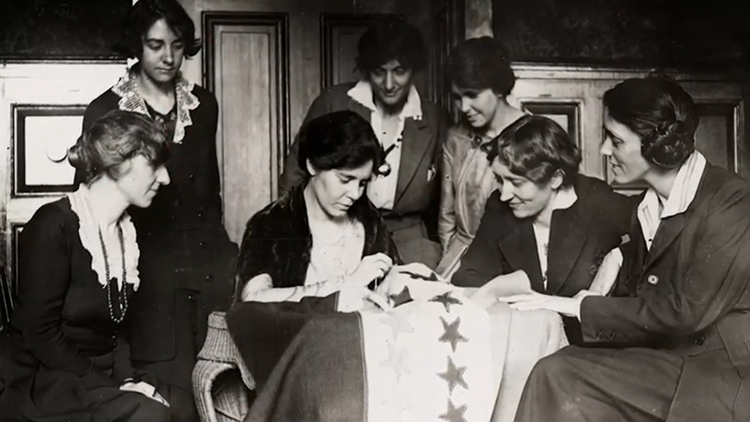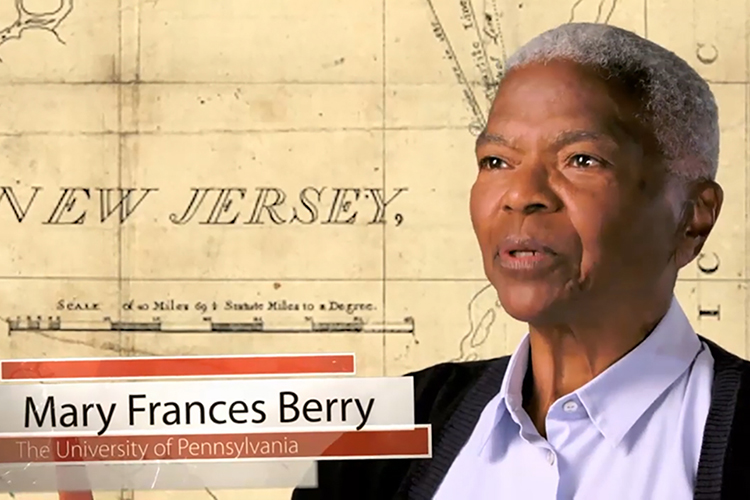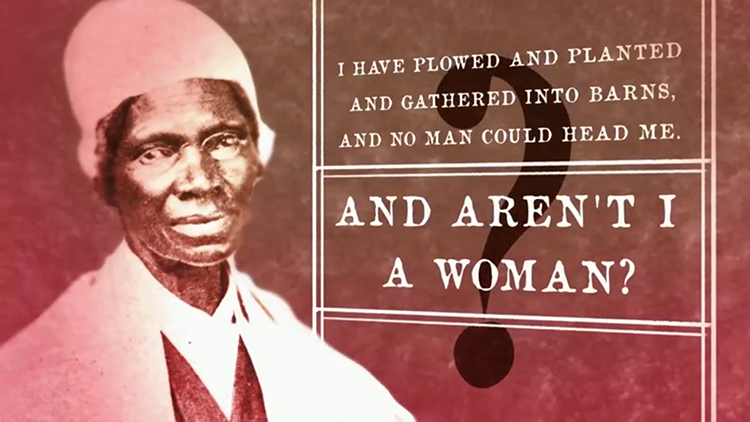John Bassani: ASME’s 2019 Daniel C. Drucker Medal
 John Bassani, Richard H. and S. L. Gabel Professor of Mechanical Engineering and Applied Mechanics, has been awarded the 2019 Daniel C. Drucker Medal by the Applied Mechanics Division of the American Society Of Mechanical Engineers (ASME), a leading engineering organization that emphasizes cross-discipline collaboration and skill development.
John Bassani, Richard H. and S. L. Gabel Professor of Mechanical Engineering and Applied Mechanics, has been awarded the 2019 Daniel C. Drucker Medal by the Applied Mechanics Division of the American Society Of Mechanical Engineers (ASME), a leading engineering organization that emphasizes cross-discipline collaboration and skill development.
Dr. Bassani has spent years studying plastic deformation and fracture from atomic-level properties to macroscopic continuum mechanics in a wide range of materials. The award announcement noted Dr. Bassani’s contributions to “the mechanics of materials in the areas of dislocation mechanics, crystal plasticity, texture evolution, creep fracture, interfacial fracture and grain boundaries through the use of innovative methods that link atomistic modeling, nonlinear continuum mechanics and computational mechanics.”
Among his many distinctions, Daniel C. Drucker was a former president of ASME, dean of engineering at the University of Illinois Urbana-Champaign, a member of National Academies of Engineering and a recipient of the National Medal of Science. According to ASME, the Daniel C. Drucker Medal “is conferred in recognition of distinguished contributions to the field of applied mechanics and mechanical engineering through research, teaching and service to the community over a substantial period of time.”
Lee Bassett, Andrew Tsourkas: Grainger Foundation Grant
The National Academy of Engineering (NAE) has awarded two Penn engineers with The Grainger Foundation Frontiers of Engineering Grant for Advancement of Interdisciplinary Research. Lee Bassett, assistant professor in the department of electrical and systems engineering, and Andrew Tsourkas, professor in the department of bioengineering, will be using the $30,000 award to kick-start their research collaboration.
The NAE describes the Frontiers of Engineering program as one that “brings together outstanding early-career engineers from industry, academia, and government to discuss pioneering technical work and leading-edge research in various engineering fields and industry sectors. The goal is to facilitate interactions and exchange of techniques and approaches across fields and facilitate networking among the next generation of engineering leaders.”
Dr. Bassett’s and Dr. Tsourkas’s proposed research requires them to combine their different areas of expertise to push the state of the art in engineering. The pair plans to engineer a new class of nanoparticles that can sense and differentially react to particular chemicals in their biochemical environment. This new class of nanoparticles could allow scientists to better study cellular processes and could eventually have important applications in medicine, potentially allowing for more personalized diagnoses and targeted treatment of disease.
José Bauermeister: Aspen Institute Health Innovators Fellowship
Twenty-one senior health-care leaders were chosen to join the Aspen Institute Health Innovators Fellowship’s fifth class and the program’s network of health-care entrepreneurs and innovators from across the United States. These leaders—including Penn Nursing’s José Bauermeister, Presidential Professor and director of the Penn Program on Sexuality, Technology & Action Research (PSTAR) —will embark on a two-year fellowship that will strengthen their leadership and challenge them to develop new approaches to improve the health and wellbeing of Americans.
Fellows from this class hail from all parts of the country and work across the health-care ecosystem, with expertise ranging from mental health and medicine to health care technology and venture capital. They represent business, nonprofit, and government organizations.
The Health Innovators Fellows will spend four weeks over the course of two years exploring their leadership, core values, desired legacies and vision for the health-care system. All Fellows commit to launching a leadership venture that will stretch and challenge them and have a positive and lasting impact on health care in the US. The Health Innovators Fellows join more than 3,000 other entrepreneurial leaders from over 60 countries to become members of the Aspen Global Leadership Network (AGLN).
The Aspen Institute launched the fellowship in 2015 in partnership with Prisma Health, South Carolina’s largest not-for-profit healthcare system and an advocate for healthy-living initiatives across the state.
Dawn Bonnell: ACerS Distinguished Life Member
-resized.jpg) Dawn Bonnell, Penn’s vice provost for research and the Henry Robinson Towne Professor of Materials Science and Engineering, has been honored as one of three 2019 Distinguished Life Members of the American Ceramic Society (ACerS), an organization that strives to advance understanding of ceramics and other materials. The Distinguished Life Member award is the organization’s highest honor.
Dawn Bonnell, Penn’s vice provost for research and the Henry Robinson Towne Professor of Materials Science and Engineering, has been honored as one of three 2019 Distinguished Life Members of the American Ceramic Society (ACerS), an organization that strives to advance understanding of ceramics and other materials. The Distinguished Life Member award is the organization’s highest honor.
According to ACerS president Sylvia Johnson: “Every year the society honors outstanding members who have devoted their professional lives to advancing ceramic and glass science and have made significant contributions to their profession.”
Dr. Bonnell has been a member of ACerS for over 35 years and was recognized with a Distinguished Life Membership for her work on material properties. Dr. Bonnell researches how atoms’ behavior varies in different complex materials and how that variation can be capitalized on to design nanoscale devices. She will accept her award at ACerS’s Annual Honor and Awards banquet in September.
Alice Chen-Plotkin, Yuk Yee Leung: BAND Program Grants
Alice Chen-Plotkin, associate professor of neurology at PSOM, received a 2019 Biomarkers Across Neurodegenerative Diseases (BAND) Program grant for $149,621 over two years for measuring different types of alpha-synuclein and tau oligomers in human-derived bio fluids from Parkinson’s and Alzheimer’s disease.
Yuk Yee Leung, research assistant professor of pathology and laboratory medicine, received a 2019 BAND Program grant for $150,000 over two years to help fund research on inferring regulatory mechanisms of noncoding genetic variants in Alzheimer’s disease and related disorders.
Marie-Elena Cronin: DTA Scholarship
Rising fourth-year student Marie-Elena Cronin (D’20) has been recognized for her community service activities as the recipient of the 2019 Dental Trade Alliance (DTA) Foundation/Benco Dental Scholarship. The award is one of 21 DTA Foundation scholarships presented annually to rising third- and fourth-year dental students nationwide, who along with academic excellence, have an established commitment to community service.
“Marie-Elena is so deserving of this recognition; she continues to be extremely committed to serving the community,” said Joan Gluch, chief of the Division of Community Oral Health.
Among Ms. Cronin’s community activities over the past two years, she has been particularly active with the Homeless Health Initiative (HHI) and the Philadelphia Oral Cancer 5K & Walk. HHI is a multidisciplinary program through Children’s Hospital of Philadelphia (CHOP) that provides free education and health services to children living in homeless shelters. Almost every Tuesday night, she has joined with other students and faculty to provide dental screenings and fluoride varnish applications to these children, along with instruction on oral hygiene.
“The most important part of our encounter is educating the children and their parents,” noted Ms. Cronin. “Our goal is to give these children the tools and knowledge to set up healthy oral hygiene habits at a formative age. By simply spending a few minutes with each child to educate them on the importance of taking care of their teeth through oral hygiene and diet, we can make a great impact on their lives.”
For the past two years, she has also served as executive director of the Philadelphia Oral Cancer 5K & Walk, a student organized event to build awareness of oral cancer and the importance of screening. This year, the event raised $20,000 to support oral cancer research and drew more than 300 runners and walkers.
“This year, we are very proud to have created the Penn Dental Oral Cancer Research Fund right here at Penn Dental Medicine to support oral cancer research and to help provide maxillofacial prostheses to oral cancer survivors,” added Ms. Cronin. “We are driven to work tirelessly each year by the oral cancer survivors and their families, who come out to support and participate in our race.”
As a DTA Foundation scholarship recipient, she will receive $5,000 in financial support.
Daniel Dempsey: Strittmatter Award
Daniel Dempsey, chief of gastrointestinal surgery, assistant director of peri-operative services for the Hospital of the University of Pennsylvania and a professor of surgery, received the Strittmatter Award from the Philadelphia County Medical Society (PCMS). He officially accepted this award on June 29 at the Society’s President’s Installation and Awards Night. The Strittmatter Award, dating back to 1923 and considered the Society’s most prestigious award, is given to a PCMS physician who has made “the most valuable contributions to the healing arts.”
Grey DeSimone, Emily Spencer: SEAS Design Project 1st Place
During their senior year, Penn Engineering students from all six of the school’s departments dedicate themselves to developing the pinnacle of their engineering education: their senior design project.
Through two mandatory classes taken in the fall and spring of their senior year, student teams work to pinpoint a real-world problem and spend the year trying to solve it. The process of identifying an issue, brainstorming solutions and engineering new technology requires students to consult with faculty advisors and other experts in the field to refine their project.
In the spring, each department holds their own competition to recognize the students’ achievements and to determine which teams from their department will move forward to the school-wide finals. On May 3, the final contenders gathered in Wu and Chen Auditorium in Levine Hall to pitch their projects to a panel of alumni judges who evaluated their engineering designs and their ability to communicate their projects’ capacity to make an impact.
The 1st place team, Project Kirigami ENV (MSE), Grey DeSimone and Emily Spencer, was advised by Shu Yang, professor, MSE.
Kirigami ENV is a specially engineered building envelope, which is a material applied to a building’s exterior to bolster insulation. It’s inspired by the Japanese art form kirigami, which is based on skillfully folding and cutting paper. The Kirigami Envelope expands and contracts semi-autonomously to aid with insulation, light management and water collection, promising significant reductions in the energy costs of buildings equipped with the technology.
Penn: 2019 Healthiest Employers
The University of Pennsylvania made the Philadelphia Business Journal’s 2019 list of healthiest employers in the “extra-large companies” category (5,000+ employees). Employers completed an online assessment and applicants received a Healthiest Employers Index (HEI), a 1-100 metric to measure their program. The six values used to judge each company were: vision, culture/engagement, learning, expertise, metrics and technology.
The article highlighted Penn’s Penn Healthy You and the Be in the Know campaign that encourages faculty and staff to not only ‘be in the know’ about key health indicators, but to also use what they know to take action for their wellbeing. There are over 30 qualifying bonus actions for the 2018-2019 campaign year, in four categories: Preventative Health, Wellness Activities, Physical Activity, and Online Programs. The campaign offers a 3 Steps for Success model, with onsite biometric screenings and an online health assessment and a variety of bonus actions.
Susan S. Ellenberg: Florence N. David Award
Susan S. Ellenberg, Penn professor of biostatistics, medical ethics and health policy, received the 2019 Florence N. David Award from the Committee of Presidents of Statistical Societies, which includes the American Statistical Association, the Eastern North American Region International Biometric Society, the Western North American Region of the International Biometric Society, the Institute of Mathematical Statistics, and the Statistical Society of Canada. Named after Florence Nightingale David, an accomplished statistician and the first recipient of the Elizabeth L. Scott Award, this honor is given each year to a female statistician who serves as a role model to other women by her contributions to the profession through excellence in research, leadership of multidisciplinary collaborative groups, statistics education, or service to the professional societies. As part of this recognition, Dr. Ellenberg delivered the FN David Lecture at the Joint Statistical Meetings in Denver.
Nader Engheta: CAE International Fellow
_Nader-resized.jpg) Nader Engheta, H. Nedwill Ramsey Professor in Electrical and Systems Engineering, Bioengineering and Materials Science and Engineering in Penn Engineering, has been inducted into the Canadian Academy of Engineering (CAE) as an International Fellow. The CAE comprises many of Canada’s most accomplished engineers and Dr. Engheta was among the five international fellows that were inducted this year.
Nader Engheta, H. Nedwill Ramsey Professor in Electrical and Systems Engineering, Bioengineering and Materials Science and Engineering in Penn Engineering, has been inducted into the Canadian Academy of Engineering (CAE) as an International Fellow. The CAE comprises many of Canada’s most accomplished engineers and Dr. Engheta was among the five international fellows that were inducted this year.
The Academy’s President Eddy Isaacs remarked: “Over our past 32 years, Fellows of Academy have provided insights in the fields of education, infrastructure, and innovation, and we are expecting the new Fellows to expand upon these contributions to public policy considerably.”
Dr. Engheta was recognized “for his trailblazing contributions in engineering and physics of light-matter interaction in metamaterials.”
Dr. Engheta’s research interests span the fields of nanooptics and nanophotonics, metamaterials and plasmonics, and optical nanostructure modeling. He also has an ongoing collaboration with the University of Ottawa, and he has previously spoken at its annual Schawlow-Townes Symposium on Photonics.
Matthew Hartley: Kazakhstan National Award
Matthew Hartley, GSE’s associate dean of academic affairs, was nominated by Nazarbayev University’s Graduate School of Education for a national award in Kazakhstan. The award was presented at a meeting in Cambridge, England by Nazarbayev University GSE’s dean Aida Sagintayeva, “for contributions to the development of research (science) for the Republic of Kazakhstan” based on NU’s and Penn GSE’s joint research in education.
2019 Alzheimer Association Grants
Dawn Mechanic-Hamilton, assistant professor of neuropsychology at PSOM and director of Cognitive Fitness Programs and Neuropsychological Services at the Penn Memory Center, received an Alzheimer’s Association Clinician Scientist Fellowship Program grant for $139,497 over two years for research and the development of a mobile cognitive assessment tool.
Gabor Egervari, postdoctoral researcher in cell and developmental biology, received an Alzheimer’s Association Research Fellowship (AARF) Program grant of $175,000 over three years for research on ACSS2 and the metabolic-epigenetic axis in Alzheimer’s disease.
Laura Wisse, postdoctoral fellow in radiology, received an AARF Program grant for $175,000 over three years for research on the etiology and progression of suspected non-Alzheimer’s pathophysiology.
The US Government Accountability Office appointed Amol Navathe, co-director of the Healthcare Transformation Institute and associate director of the Center for Health Incentives and Behavioral Economics at Penn, to the Medicare Payment Advisory Commission (MedPAC). Congress established MedPAC in 1997 to analyze access to care, cost and quality of care and other key issues affecting Medicare. MedPAC advises Congress on payments to providers in Medicare’s traditional fee-for-service programs and to health plans participating in the Medicare Advantage program. Dr. Navathe, assistant professor at Penn and staff physician at the Corporal Michael J. Crescenz VA Medical Center, and his research group designs, tests and evaluates payment models for national insurers and state Blue Cross-Blue Shield plans. He also leads the American Hospital Association’s national bundled payment collaborative to disseminate evidence-based best practices. He received his MD from Penn Medicine and his PhD in health-care management and economics from Penn’s Wharton School.
Ravi Parikh: Young Investigator Award
Ravi Parikh, a fellow in Penn Medicine’s hematology-oncology department, received a 2019 Harry F. Bisel, MD, Endowed Young Investigator Award from the Conquer Cancer Foundation and the American Society of Clinical Oncology. The $50,000 award will go toward Dr. Parikh’s research, “Checkpoint Inhibitor Therapy in Patients with Poor Performance Status: Real-World Uptake and Effectiveness.” He accepted the award at the ASCO Annual Meeting in Chicago.
Robert H. Vonderheide: Stand Up to Cancer Grant
Robert H. Vonderheide, director of Penn’s Abramson Cancer Center, received a Stand Up to Cancer grant for his role as the leader of a Pancreatic Cancer Collective New Therapies Challenge Research Team. The team’s project is called “Antigenicity of mutant KRAS and impact on cancer evolution.” Their work will combine expertise in immunobiology and computational biology to analyze three unique, clinically curated datasets, including short- and long-term pancreatic cancer survivors, primary resected pancreatic cancers and mKRAS lung and colon cancers, to investigate how mKRAS immunogenicity may dictate outcomes. The two-year grant provides $225,000 for this research.
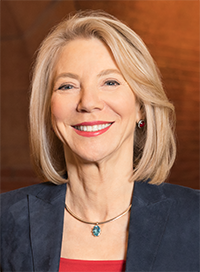 Whenever first-time visitors come to campus, I introduce them to Penn by describing the University’s great natural advantage: everyone and everything is only a short walk away. By virtue of being so geographically compact, we at Penn are also naturally inclined to be intellectually connected. It’s not only natural, it’s also essential to our academic mission. With the bold goal of advancing knowledge for good, we have been building the infrastructure to ensure that crossing disciplines to discover new, eye-opening perspectives on the most profound problems is no more challenging than crossing Locust or Woodland Walk.
Whenever first-time visitors come to campus, I introduce them to Penn by describing the University’s great natural advantage: everyone and everything is only a short walk away. By virtue of being so geographically compact, we at Penn are also naturally inclined to be intellectually connected. It’s not only natural, it’s also essential to our academic mission. With the bold goal of advancing knowledge for good, we have been building the infrastructure to ensure that crossing disciplines to discover new, eye-opening perspectives on the most profound problems is no more challenging than crossing Locust or Woodland Walk.

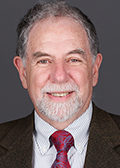 Thomas Mallouk has been named Vagelos Professor in Energy Research. Dr. Mallouk came to Penn from Penn State, where he was the Evan Pugh University Professor of Chemistry, Biochemistry and Molecular Biology, Physics, and Engineering Science and Mechanics. He is a materials chemist who uses nanoscale assembly techniques to make complex materials for specific functions in solar and electrochemical energy conversion.
Thomas Mallouk has been named Vagelos Professor in Energy Research. Dr. Mallouk came to Penn from Penn State, where he was the Evan Pugh University Professor of Chemistry, Biochemistry and Molecular Biology, Physics, and Engineering Science and Mechanics. He is a materials chemist who uses nanoscale assembly techniques to make complex materials for specific functions in solar and electrochemical energy conversion.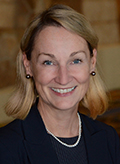

 John Bassani, Richard H. and S. L. Gabel Professor of Mechanical Engineering and Applied Mechanics, has been awarded the 2019 Daniel C. Drucker Medal by the Applied Mechanics Division of the American Society Of Mechanical Engineers (ASME), a leading engineering organization that emphasizes cross-discipline collaboration and skill development.
John Bassani, Richard H. and S. L. Gabel Professor of Mechanical Engineering and Applied Mechanics, has been awarded the 2019 Daniel C. Drucker Medal by the Applied Mechanics Division of the American Society Of Mechanical Engineers (ASME), a leading engineering organization that emphasizes cross-discipline collaboration and skill development.-resized.jpg) Dawn Bonnell, Penn’s vice provost for research and the Henry Robinson Towne Professor of Materials Science and Engineering, has been honored as one of three 2019 Distinguished Life Members of the American Ceramic Society (ACerS), an organization that strives to advance understanding of ceramics and other materials. The Distinguished Life Member award is the organization’s highest honor.
Dawn Bonnell, Penn’s vice provost for research and the Henry Robinson Towne Professor of Materials Science and Engineering, has been honored as one of three 2019 Distinguished Life Members of the American Ceramic Society (ACerS), an organization that strives to advance understanding of ceramics and other materials. The Distinguished Life Member award is the organization’s highest honor._Nader-resized.jpg) Nader Engheta, H. Nedwill Ramsey Professor in Electrical and Systems Engineering, Bioengineering and Materials Science and Engineering in Penn Engineering, has been inducted into the Canadian Academy of Engineering (CAE) as an International Fellow. The CAE comprises many of Canada’s most accomplished engineers and Dr. Engheta was among the five international fellows that were inducted this year.
Nader Engheta, H. Nedwill Ramsey Professor in Electrical and Systems Engineering, Bioengineering and Materials Science and Engineering in Penn Engineering, has been inducted into the Canadian Academy of Engineering (CAE) as an International Fellow. The CAE comprises many of Canada’s most accomplished engineers and Dr. Engheta was among the five international fellows that were inducted this year.